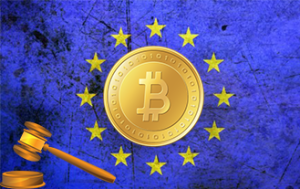Blockchain: The Ultimate Governance Tool

The path towards Bitcoin regulation and blockchain adoption has been quite slow and there are still many obstacles ahead, but at least governments and elected representatives are talking about it. It seems that once the block chain genie was out of the bottle, the only thing governments could do was adopt it and get their own set of wishes. That is why the European parliament is set to open discussions about cryptocurrencies today, and the UK government’s chief scientific advisor is looking into the adoption of block chain for several different government uses.
When governments end up using cryptocurrencies and the block chain – and they will eventually – for their own purposes, it will probably elicit a strong reaction from many in the Bitcoin community. Although ironic, it is not unprecedented that a given technology is taken out of the context in which it was created, to cater to the interests of others. However the most important thing to know is how governments plan to use the technology and why. After all, this can take the whole concept of ‘big brother’ to a whole new level.
The Public can Benefit
In the UK’s annual report of the government chief scientific advisor 2015, Sir Mark Walport highlights the use of block chain to power governance. To find suggestions about the use of block chain in governance, on a report that focuses on forensics is quite revealing. The report speaks about the use of watermarks and other kinds of pieces of information embedded in files that will help government trace all kinds of internet based activity. Since internet based control is dominating the physical world more and more, this can be beneficial to the law abiding public.
Cryptocurrencies like bitcoin for example, are impossible to forge, which makes them a great choice for central banks especially if they want to prevent certain types of crime. Getting rid of cash by replacing it with a cryptocurrency, will also give the government the advantage of tracing every transaction. This has the potential to expose the finances of any unlawful organization or any organization engaging in unlawful activity within a given territory.
Beyond the obvious application of block chain to financial issues, it can also serve to reduce government spending in other areas. The report speaks about the benefits of registering people’s identities on a distributive ledger for example. With high grades of encryption, people’s identities will be safe and could be automatically used by government supported systems to receive government services without generating additional costs involved in the production and use of plastic cards. Governments could also save money by using block chain to run elections, or carry out all kinds of processes like background security checks and more.
The Inevitable Flaws
The advantages of block chain use by governments are clear and well known. However certain sectors within the general population will feel threatened by the degree to which their privacy might be compromised. The report tries to reassure the public. Sir Walport writes that “forensic analysis has helped to reduce [crimes] by enabling us to understand how particular types of crime were committed, and by making the crime less attractive to the criminal.” Without looking at the numbers, it seems that forensics have only encouraged criminals to become more sophisticated.
This probably means that crime is becoming less and less violent, therefore less perceptible. However, system vulnerabilities can be exploited remotely by anyone with a connection to the internet, and if those individuals reside in jurisdictions that will guarantee them safety from prosecution for crimes committed in the UK, then forensics will become useless.
1984
The more concerning aspect of a block chain-powered government goes beyond the safety of the information. It has to do more with how this information will be used by the authorities. Although Sir Walport wants to reassure the public about the use of this information, an Orwellian future seems to be around the corner. Law abiding citizens would certainly have their reservations about the amount of privacy they are willing to give up to improve law enforcement.
Final Thoughts
Although the scope of the EU parliament’s discussion today is limited to cryptocurrencies, it should also take this UK government report into account. Cryptocurrency in general and Bitcoin in particular opened the gates to all these ‘big brother’ scenarios. It starts with government oversight on every transaction people make; all the dystopic works of literature can indicate where it may end. This is why the public must exercise its right and become more involved in regulatory processes. The EU parliament and probably the UK government are far from building a fully-fledged plan to switch governance to block chain, but they are clearly catching up with the most powerful tool that Bitcoin has given to the world. Certainly no one will ever be able to put that genie back in the bottle.







